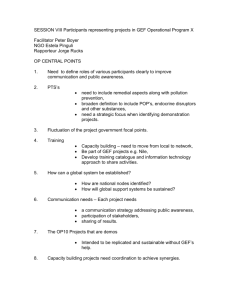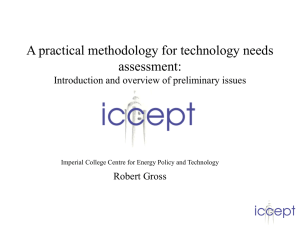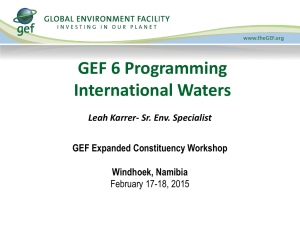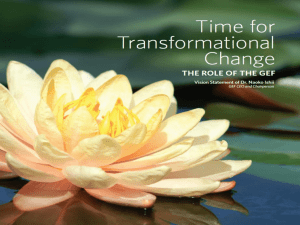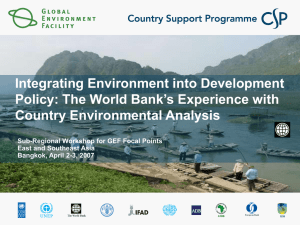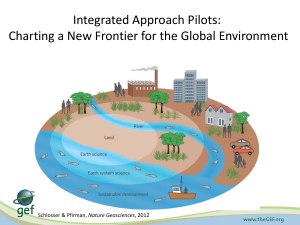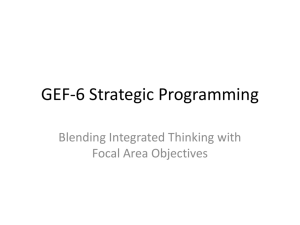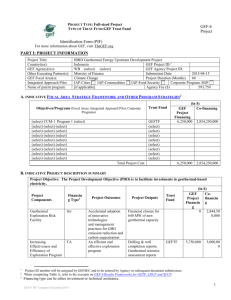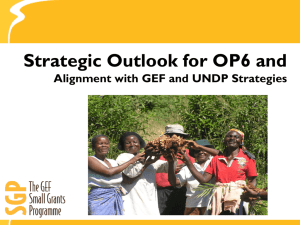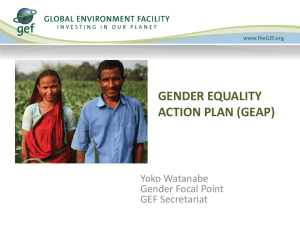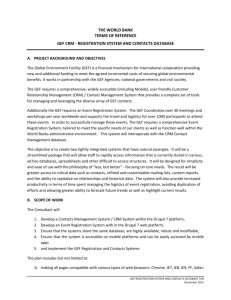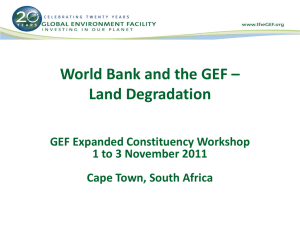GEF2020 - Global Environment Facility
advertisement
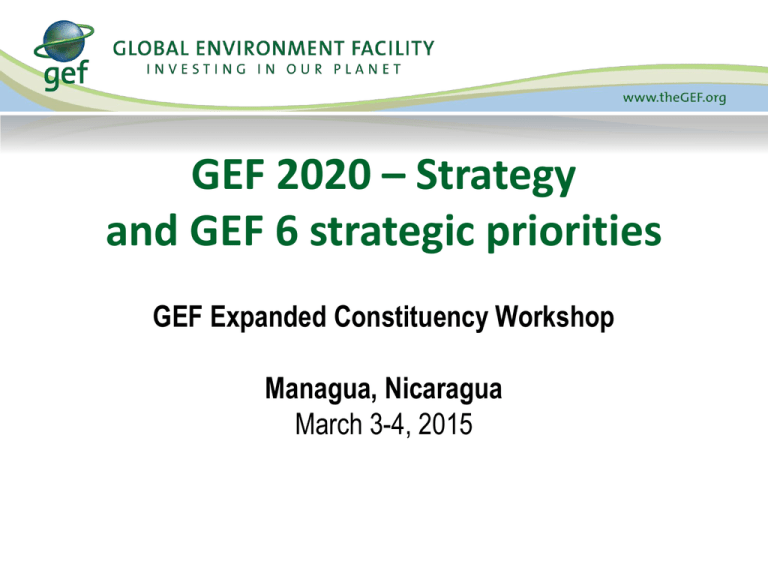
GEF 2020 – Strategy and GEF 6 strategic priorities GEF Expanded Constituency Workshop Managua, Nicaragua March 3-4, 2015 Key Earth systems are near or beyond “tipping points” Source: Rockstrom et al, “A Safe Operating Space for Humanity,” Nature (2009) Not yet quantified Planetary boundaries have been crossed or nearly crossed Proposed safe operating space for humanity in planetary systems GEF2020 Strategy A new strategy aimed at making the GEF an even more centralized actor in the international environmental arena and at achieving impacts at the scale Outline of GEF2020 Strategy • Focus on drivers of environmental degradation • Deliver integrated solutions, given that many global challenges are interlinked • Enhance resilience and adaptation • Ensure complementarity and synergies in climate finance • Choose the right “influencing model” 1. Address Drivers of Environmental Degradation Underlying socioeconomic trends Population growth Indirect environmental drivers Demand for food production Demand for buildings Rising middle class Demand for energy Demand for transportation Direct environmental drivers Environmental pressures Agriculture production processes that produce food Pollution e.g., GHG’s & ozonedepleting substances Provision/use of transportation Change in habitat and species loss Construction & use of buildings & other infrastructure Introduction of invasive species Production of electricity Over exploitation and harvesting Urbanization Other Other Other Driver interventions Pressure interventions Changes in human welfare Changes in state of environment Atmosphere (climate) Biodiversity Land Oceans Freshwater 2. Deliver Integrated Solutions • Ex: Integrated approach programs (IAPs) in GEF-6: – Sustainable Cities – Deforestation out of Commodity Supply – Fostering Sustainability and Resilience for Food Security in Sub-Saharan Africa • An increasing portfolio of multi-focal area projects and programs 3. Enhance Resilience GEF Adaptation Program: – LDCF, SCCF – 124 countries worth US$1.2 billion – National adaptation plans (NAPs) – Ecosystem based adaptation 4. Ensure Complementarity in Climate Finance • Increasingly complex climate finance architecture • GEF “niche”: – Transforming policy and regulatory environments; build institutional capacity – Demonstrate new technology and business models – De-risk partner investments – Build multi-stakeholder alliances Choosing the Right Influencing Model Transforming policy and regulatory environments Strengthening institutional capacity and decision-making processes Convening multi-stakeholder alliances. Demonstrating innovative approaches. Deploying innovative financial instruments Three Key Operational Priorities Work closely with local and global stakeholders (national and local governments, private sector, civil society) Improve GEF operational efficiencies Strengthen Results Management Implementing GEF-6 • GEF-6 operational July 1, 2014 - June 30, 2018 • Donor countries pledged USD 4.43 billion, the record funding level Main changes from GEF-5: More for Chemical (Minamata); Less for Climate (GCF?); Note: Excludes Corporate Programs and Non-Grant Instrument Pilot. Also, does not include LDCF/SCCF Biodiversity now largest FA Implementing GEF-6 • Through strategic partnerships • Address global environmental issues where a country plays a pivotal role • Activities that cut across multiple focal areas and sectors, and promote integrated approach in achieving your national development objectives. Identify those areas in your National Plans where GEF can support policy, market or behavioral transformations. • Combine GEF resources with other existing resources from other donors and the government, and thus leveraging the impact in advancing national environmental priorities Implementing GEF-6 - Use of funds (recipient countries) COUNTRIES SIDS/LDCs "Big 5" Other Countries LICs LMICs … Of which UMICs HICs TOTAL Country Allocations GEF6 Allocations (US$mill) 700 631 1007 41 412 523 32 2338 => Trade-off: “Impact” vs ”equity”? Share 30% 27% 43% 2% 18% 22% 1% 100%
